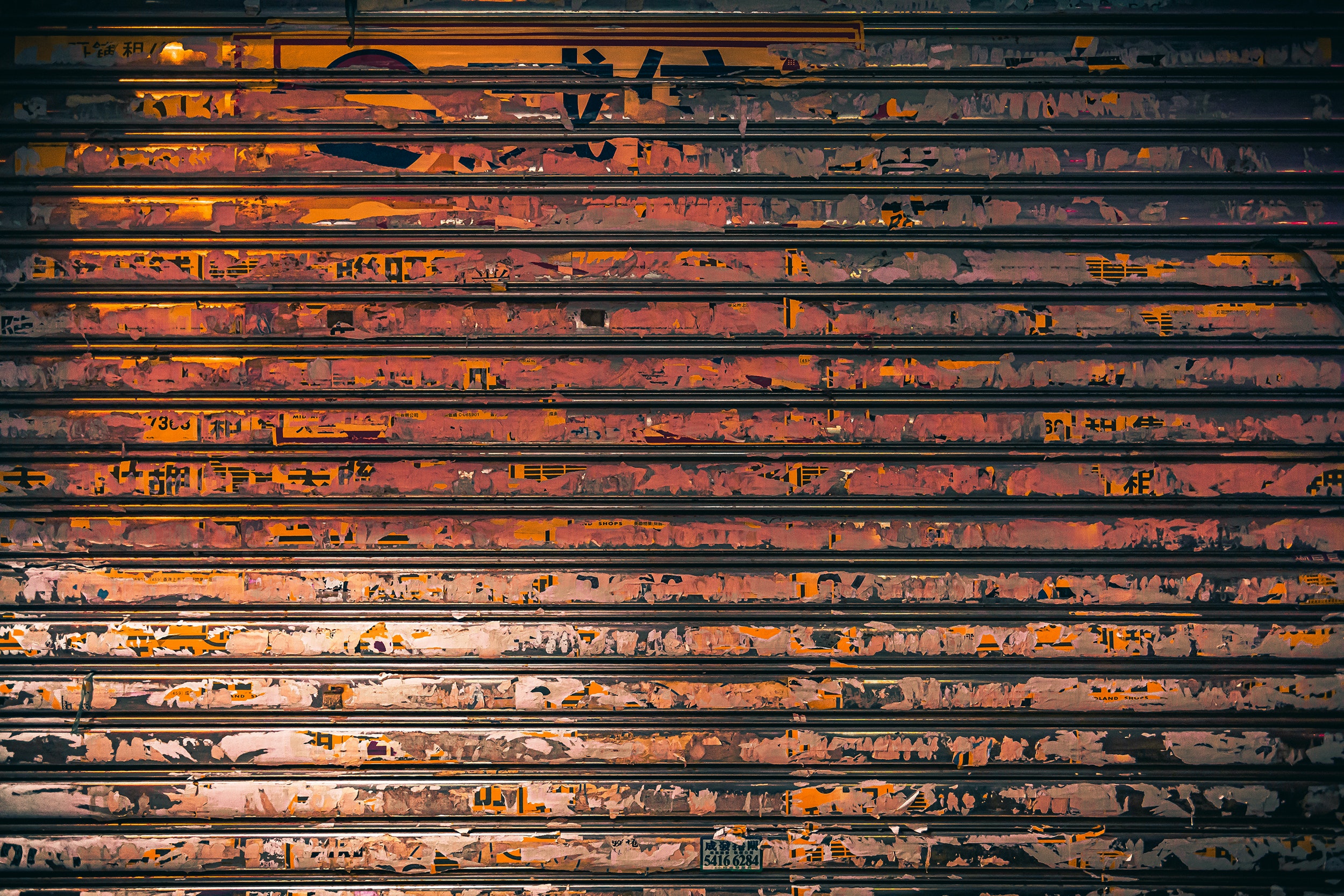How to Remove Rust From Your Garage Door

You accidentally left a shovel outside all winter, and when you retrieved it you noticed the blade had brown and red streaks on it and tiny flakes of metal fell off when you touched it. Uh-Oh.
When you decided to put it back in the garage, your eyes were drawn to the bottom of the garage door where a chunk of weatherstripping is missing – and you could see the same red and brown streaks you observed on the shovel.
That’s right, it’s probably rust, the mortal enemy of anything made of steel, metal, or iron – including your garage door.
What Is Rust?
The Merriam Webster dictionary defines "rust" as “the red or orange coating that forms on the surface of iron when exposed to air and moisture, consisting chiefly of ferric hydroxide and ferric oxide formed by oxidation.” Basically, rust is a form of corrosion that can appear on anything made of iron, metal, or steel which hasn’t been coated with rust-inhibitors or has been exposed to the elements for too long.
If your garage door wasn’t treated with a rust inhibitor when it was manufactured or installed, it can accumulate rust over time. The same goes for garage door springs, chains, and other gears used to open or close your garage door.
How Does Rust Affect Metal?
Rust is a form of iron oxide that shows up as an orange powder or streaks on metal surfaces that have begun to corrode. The Department of Physics at the University of Illinois at Urbana-Champaign says that there are many ways rust can affect metal.
- It can make steel, metal, or iron surfaces or components weaker.
- Components designed to slide over one another can get stuck when rust is present.
- “Rust can make holes in sheet metal.”
- Rust can make magnets less effective.
- Rust doesn’t conduct electricity and can therefore interfere with electrical components.
- So, yes, rust can have a terrible effect on the durability, safety, and effectiveness of your garage door and related components. Even the presence of small amounts of rust can be a harbinger of bad things to come if you don’t clean and maintain your garage door when needed.
How to Remove Rust from Your Garage Door
Most modern garage doors are rust-resistant, constructed most often with rust-resistant materials like steel, wood, composite wood, aluminum, fiberglass, or vinyl. But if your garage door is old and was made of steel that didn’t include a rust inhibitor, it may eventually wear down. Rusting is most likely along the bottom where rain, snow, and destructive materials like road salt, standing water, and other items collect. And corrosion can be worse if you reside near saltwater, as rusting is exacerbated by the corrosive actions of humid salt air.
Signs of rust on your garage door should be dealt with right away. Rust spreads faster than you could imagine and, if left untreated, it can tarnish the appearance of your garage door and eventually start to eat away at the surface.
Follow these simple steps to get rust off your garage door.
Eliminate Rust
You can do this by wiping down all areas that are rusted with a cloth soaked in white vinegar. The vinegar will change with the rust, initiating it to disperse. Then, apply a steel-wool pad to rub off the rust. It’s critical to remove all rust in order to halt the oxidation process from going any further. Rust that isn’t removed could spread. That’s why just sanding and painting over rust isn’t advisable.
Fill in the Holes
If you notice holes in the door, fill them in with an auto body filler or another bonding agent which can be used on metal. Once the filler dries, sand the area using fine-grit paper. Then, continue sanding the entire door. Once finished, wipe off any remaining dust with a dry cloth or brush.
The Door Will Need To Be Washed
If you’ve ever had the interior of your home painted, you’ve probably seen the painter wipe down or wash all surfaces before painting. Dirt will interfere with the paint and eventually bleed through. If this can happen with a wall inside your home, it also can happen with a garage door that has rust spots. Thus, it’s a requirement to thoroughly clean the door prior to painting, and any pieces of debris like leaves, because they will leave lumps on the surface. You can first use a solution of warm water and dish soap, but for optimal results, try a solution of trisodium phosphate and warm water by following product instructions. Finally, rinse the door with water and a sponge or by spraying it with a garden hose. Let dry before painting.
Paint Your Door
Congratulations! You’re now ready for the final steps – priming and painting your garage door. As any garage door installer will tell you, use rust-resistant primer and paint that’s designed for metal garage doors. And it won’t hurt to see if the garage door manufacturer recommends specific painting products and methods.
Work With Trusted Professionals
A Better Garage Door, locally owned and operated, has served hundreds of residential and business customers in and around the Greater Denver area for more than 20 years. The best garage door not only works as expected, but makes a good first impression for your home. If you need tips for maintenance or repair, or need advice on a new door or accessories, contact our team of Broomfield and Parker garage door service professionals to request more information.